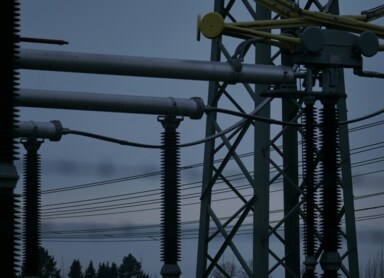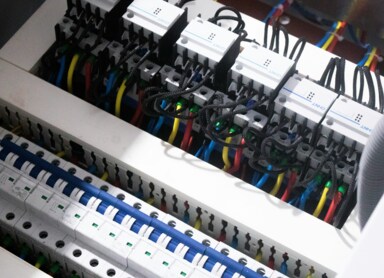Renewable energy sources - what are renewable energy sources and what are their types?
Energy is essential for businesses to function. Companies need it on a daily basis to operate efficiently. The RES industry can minimise the environmental impact of industry and reduce business costs. What is worth knowing about it?
RES - what does it mean? Definition and key information
RES is an acronym that has been extremely talked about in the media for years. It is derived from the words Renewable Energy Sources and refers to any raw material whose consumption in the long term does not cause a deficit. This means that today, fifty years from now, but also a hundred years from now, it will be possible to use them just as efficiently without reducing the pool of available resources for future generations.
In the search for a definition of RES, it is worth referring to government sources. The Renewable Energy Sources Act1 in Article 2(22) explains the term as renewable and non-fossil energy sources.
The use of RES is not only important for companies, but also for consumers. Its users reduce expenditure, but also add their share to the fight to protect the environment. A Eurostat study shows that in the countries of the European Union, renewable energy sources are growing in popularity. In 2021, 21.9% of the total energy generated in EU countries came from RES. A year later, this percentage had risen to 23%2.
The countries of the Scandinavian peninsula - Sweden, Finland and Denmark - lead the way in the use of RES. Poland - at least for now - remains far from the podium. Nevertheless, legislative solutions of recent years show that our legislator recognises the importance of RES for the economy and the environment. Mechanisms are gradually being implemented to make the use of these technologies more accessible.
Renewable energy sources: what is it? Introduction to the world of renewable energy sources
The use of RES has many benefits not only for current users, but also for future generations. Thanks to modern technologies, companies are able to obtain the energy they need to run their businesses, reducing the consumption of the earth's natural resources. In the process, the costs associated with running the business are reduced. As a result, this means higher operating profits with less investment in infrastructure.
Why less? The vast majority of RES technologies are maintenance-free. Implemented once, they only require periodic maintenance, but the energy generation itself and its distribution take place completely automatically. We will look at a few example solutions:
- silicon photovoltaic panels use the sun's energy (or more accurately, the photons in it) to produce alternating current, which is then transformed by an inverter into alternating current - the kind we use every day;
- underwater turbines, driven by currents in the sea, generate electricity which is fed into the grid on land via a submarine cable;
- windmills, whose wings are moved by the kinetic energy of the air masses, also produce electricity;
- heat pumps exploit the differences in heat levels between areas - the so-called upper and lower sources - to support the operation of the heating system.
Can it be said that RES is a true perpetual motion machine which, once started up, will operate indefinitely? Certainly not, as individual components of the installation can also wear out or break down. As an example, photovoltaic panels degrade at a rate of around 0.5% per year.
Nevertheless, these are technologies that stand out for their very long useful life compared to fossil fuels and far less environmental impact.
Types of renewable energy - from wind to solar
We have all heard the term RES, but few people can actually answer the question of what renewables are. Usually, photovoltaics or solar panels are cited as examples. There are many more solutions that make use of the natural energy present in nature in various forms. What types of renewable energies are used in industry? These can include energy:
- wind;
- aerothermal
- hydrothermal
- geothermal;
- wave, current and tidal energy;
- from biomass, biogas, biomethane and bioliquids;
- from renewable hydrogen.
Although each of these technologies operates on a different principle, they share one common denominator. They make use of energy that is generated by natural processes independently of humans.
It is worth mentioning that more and more of these technologies, such as photovoltaics and heat pumps, are finding their way into households. Renewable energy infrastructure manufacturers are continually developing more efficient solutions in order to produce more energy in a shorter time unit or to ensure energy independence in the event of a temporary lack of access to a generating source.
Photovoltaics is a good example. Year after year, panels are appearing on the market that offer ever greater efficiencies, as well as energy storage that allows for the accumulation of generated power and even emergency operation. This is particularly important for businesses, as it covers their growing electricity needs to a greater extent.
RES industry - overview and current trends
New manufacturers regularly appear on the RES industry market, including well-known companies that have not previously been associated with energy production. This gives companies a wide range of options to choose a financially advantageous offer, while at the same time lowering the market price of available technologies. This means that by 'playing green', you can gain more and more by investing less and less.
Remember to choose experienced technology providers when investing in the RES industry. Regularly monitor incentives and subsidies provided for green investors. It is worth paying attention to such programmes as:
- Energy Plus;
- Thermomodernisation bonus;
- Ecological Loan;
- My Electrician.
There is also interest in the so-called white certificates, which a company may receive in exchange for implementing solutions improving the energy efficiency of the enterprise. In addition to direct profit in the form of a reduction in business expenses, such certificates are property rights subject to general trading rules.
The importance of RES for the environment and the economy
Whether your company wants to build an image as a green company or you simply want to make business cheaper, investing in renewable energy sources is a Win-Win deal. What do you gain by committing funds to the purchase and implementation of RES?
First of all, you get a stable and sustainable energy source that is not prone to failure like overloaded electricity grids. Excess energy can be sold, thus increasing the company's revenue.
Furthermore, the modern company gains in the eyes of its stakeholders as a responsible and informed business partner. The company is also implementing measures to help meet increasingly stringent legal requirements - both in light of carbon emissions and the CSRD promoting sustainability.
If you would like to find out more about using renewable energy sources, please feel free to contact us: https://reo.pl/pl/kontakt#kontakt. You will find that investing in renewables simply pays off, regardless of why you choose to trust them.
1. https://isap.sejm.gov.pl/isap.nsf/DocDetails.xsp?id=wdu20150000478 [dostęp: 18.03.2024 r.]
2. https://ec.europa.eu/eurostat/statistics-explained/index.php?title=Renewable_energy_statistics [dostęp: 18.03.2024 r.]






